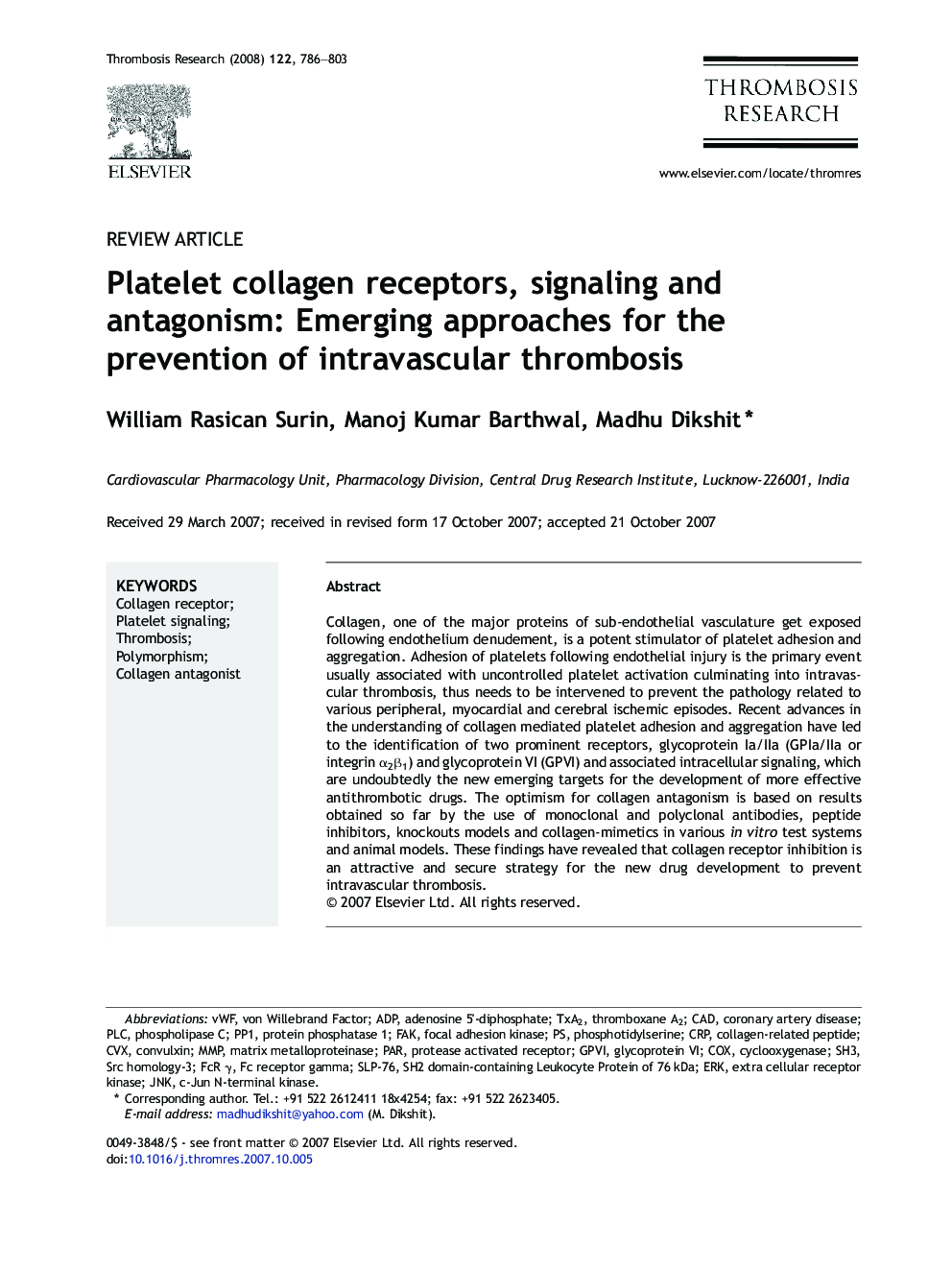| Article ID | Journal | Published Year | Pages | File Type |
|---|---|---|---|---|
| 3029396 | Thrombosis Research | 2008 | 18 Pages |
Collagen, one of the major proteins of sub-endothelial vasculature get exposed following endothelium denudement, is a potent stimulator of platelet adhesion and aggregation. Adhesion of platelets following endothelial injury is the primary event usually associated with uncontrolled platelet activation culminating into intravascular thrombosis, thus needs to be intervened to prevent the pathology related to various peripheral, myocardial and cerebral ischemic episodes. Recent advances in the understanding of collagen mediated platelet adhesion and aggregation have led to the identification of two prominent receptors, glycoprotein Ia/IIa (GPIa/IIa or integrin α2β1) and glycoprotein VI (GPVI) and associated intracellular signaling, which are undoubtedly the new emerging targets for the development of more effective antithrombotic drugs. The optimism for collagen antagonism is based on results obtained so far by the use of monoclonal and polyclonal antibodies, peptide inhibitors, knockouts models and collagen-mimetics in various in vitro test systems and animal models. These findings have revealed that collagen receptor inhibition is an attractive and secure strategy for the new drug development to prevent intravascular thrombosis.
